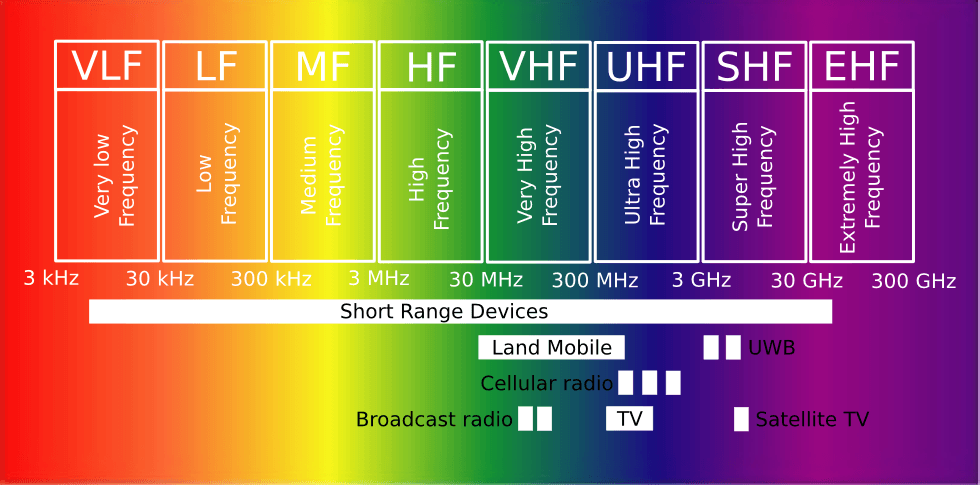Spectrum Access
The configuration of radio spectrum is determined by National Regulatory Authorities and spectrum management policy is enacted in National law.
But radio waves do not stop at political borders and so co-operation between National Regulatory Authorities is required to minimise the risk of harmful radio interference. These negotiations result in the multi-lateral agreement of a high level framework which allocates different blocks of spectrum to each of the key radio services such as broadcasting, defence, air traffic control and cellular communications for example.
Within this framework, National Regulatory Authorities undertake a second layer of bi-lateral discussions to minimise cross border interference. For example, the spectrum regulator for Northern Ireland (Ofcom) and the spectrum regulator for the Republic of Ireland (ComReg) will agree how to allocate spectrum for TV broadcast. Ofcom and ComReg will agree what frequency, power and antenna pattern will be used by each television broadcast transmitter North and South of the border. But when it comes to allocating spectrum for radio services that do not present a risk of harmful interference to foreign radio services, National Regulatory Authorities have a reasonably free hand.
National Regulatory Authorities also determine spectrum access policies: some spectrum may be allocated by licence, whilst other spectrum may be available for unlicensed use. Users that require exclusive access to spectrum will seek the protection afforded by a spectrum licence and will pay whatever fee is determined to be appropriate to the National Regulatory Authority. Consumer electronics manufacturers will tend to favour unlicensed spectrum to avoid the need for their customers to hold radio spectrum licences.
Irrespective of whether spectrum access is licensed or not, the National Regulatory Authority will require radio communications equipment to satisfy certain technical performance requirements before it can be taken into service. These requirements will be designed to mitigate the risk of harmful radio interference to other radio users. For unlicensed spectrum, these requirements may include mandatory protocol features such as “listen before talk” to ensure fair media access for all users.
Designing technical rules to prevent harmful radio interference is all very well, but National Regulatory Authorities face a far more difficult issue: to whom should spectrum access be granted? This issue arises because spectrum is a scarce resource with demand outstripping supply in many bands. Solutions to this problem include allocating spectrum on a “first come first served” basis, spectrum auctions, spectrum trading, “beauty contests” and deregulation (otherwise known as licence exemption).
We have significant experience of both the technical management of radio spectrum and of UK spectrum management policy.
Whether you have a requirement to understand the spectrum access rules that apply to your product or whether you have an operational requirement to secure access to radio spectrum resources, please get in touch.
Who are you?
Discover how we can help your business...

